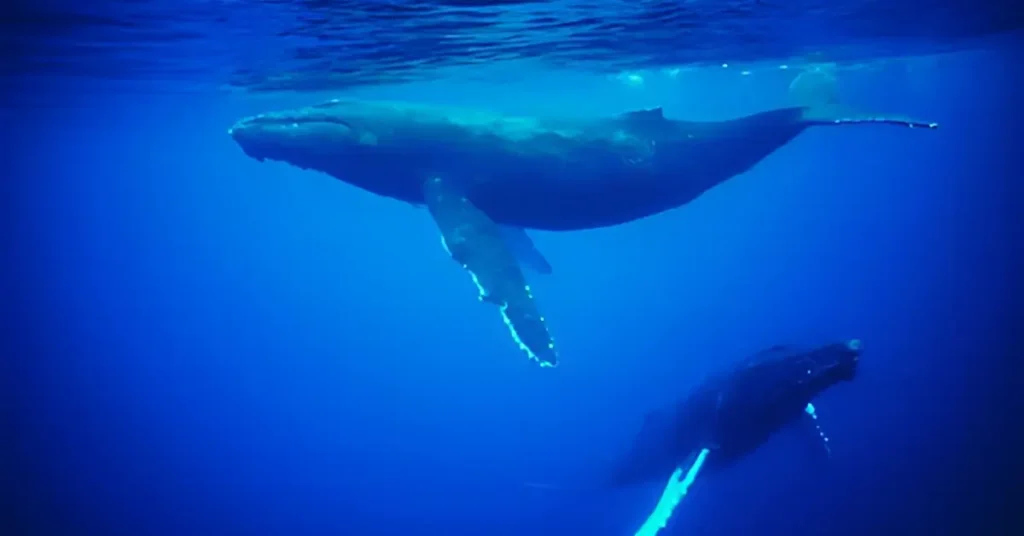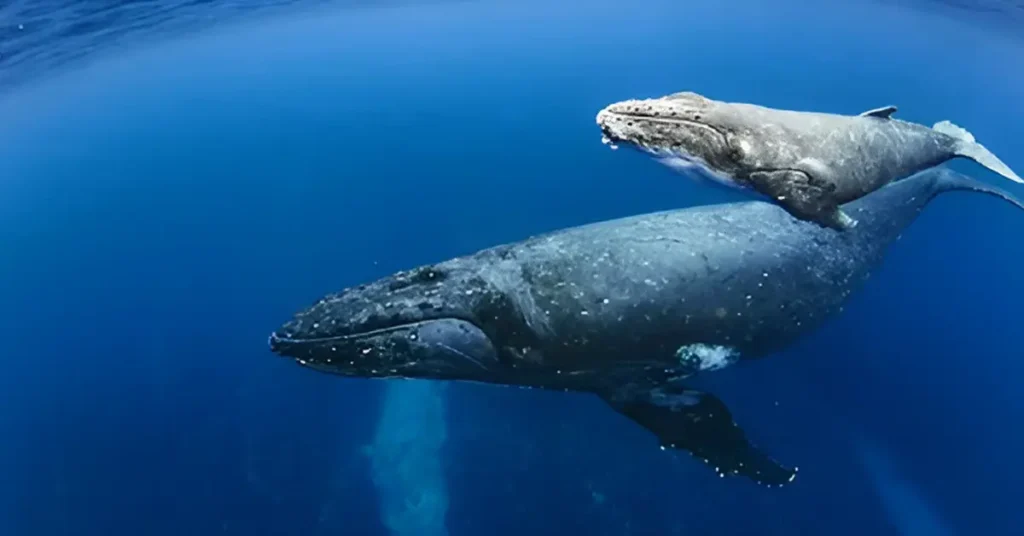For decades, the hauntingly deep songs of blue whales have echoed across the world’s oceans. These low-frequency calls, which can travel for hundreds of miles, have always been a key part of how these massive creatures communicate, navigate, and find each other. But something has changed — scientists are noticing that blue whales are calling out less. In fact, in some parts of the world, they’re going unusually quiet.
This unexpected silence is raising concerns among marine biologists. Why would one of the loudest animals on Earth suddenly go quiet? The answer seems to be linked to what’s happening in their underwater world — and it’s not looking good.
A Link Between Food and Sound
One of the clearest connections researchers have found is between food availability and whale songs. Blue whales need to eat massive amounts of krill to fuel their enormous bodies. When food is scarce, they not only struggle to feed but may also stop singing.
A study near New Zealand showed that during marine heatwaves, when warmer waters reduced krill populations, blue whales stopped making their usual feeding and mating calls. It’s as if the whales decided to conserve their energy, focusing only on survival. Without enough food, there’s little energy left for singing — and even less for mating. This silence, then, could signal that the whales are under stress.
Human Noise Is Making It Harder to Be Heard
On top of natural challenges like food scarcity, blue whales now face another growing problem: the constant noise of human activity. From ship engines to oil exploration to military sonar, our oceans have become a lot louder over the past few decades. And that noise overlaps with the same frequencies whales use to communicate.
Imagine trying to have a conversation with someone while standing next to a highway. That’s what it’s like for a blue whale trying to sing in today’s noisy oceans. In some cases, whales may try to call louder or change their tone, but often they simply stop calling altogether — possibly because they know no one can hear them.

A Long-Term Shift in Whale Songs
Interestingly, this isn’t just a sudden change. Scientists have been tracking whale song data for years, and there’s a noticeable trend: blue whale calls are gradually lowering in pitch over time. While that change has puzzled researchers, it’s likely tied to changes in population density or behavior, rather than being directly harmful. But the recent drop in how often whales are singing — especially during mating season — is something different. It seems tied to immediate environmental stress, not gradual adaptation.
What Silence Really Means
When blue whales stop singing, it’s more than just the loss of an iconic sound — it’s a signal that something in the ocean ecosystem isn’t right. These animals rely on sound for almost everything: finding mates, tracking food, and staying connected. If they’re going quiet, it’s likely because they’re struggling.
In this way, blue whales are acting like early warning systems. Their silence tells us that climate change, overfishing, and underwater noise pollution are combining to make the oceans harder to live in — even for creatures that have survived for millions of years.
What Can Be Done?
The good news is, there are steps that can help. One of the most effective? Slowing down ships. When vessels reduce speed, it lowers underwater noise levels significantly. This not only helps whales hear each other again but also reduces the risk of collisions.
Governments and conservation groups are also pushing for quieter shipping technology and better regulations around sonar and seismic exploration. At the same time, tackling climate change remains a bigger piece of the puzzle — protecting krill populations and maintaining healthy marine ecosystems is essential for blue whale survival.
Final Thoughts
The silence of blue whales isn’t just a curiosity — it’s a warning. As one of the ocean’s most powerful voices begins to fade, it’s a reminder that our actions on land and sea are having lasting effects. Protecting the blue whale means protecting the ocean itself. And if we listen closely, we might still have time to respond.
Don’t forget to check our article about iPhone 17 Pro Leak Reveals Bigger Camera, Thicker Design, and New MagSafe Case, Xiaomi YU7 Electric SUV Launched In China to Challenge Tesla Model Y, and Avatar: Fire and Ash Trailer Breakdown – 7 Details You Might Have Missed for more news.







